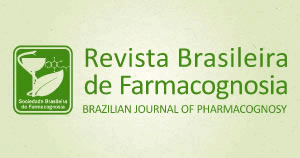The excess of nitric oxide (NO) produced by induction of nitric oxide sintase enzyme (iNOS) participates in the development of countless disorders that lead to the loss of homeostasis. The oxidative stress generated by the increase of endogenous production of NO can lead to some effects of induced toxicity, such as fatty per oxidation, nitration of proteins and DNA damages. Compounds that scavenge the NO radical can reduce the toxicity of reactive nitrogen species (RNS), and act in the modulation of inflammatory processes. Works accomplished with the alga species Bryothamnion triquetrum (Gmelin) Howe demonstrated that it presents an antioxidant action, and it is efficient in the scavenging of DPPH radical and in the inhibition of fatty per oxidation, with activity comparable to the ascorbic acid and α-tocoferol. This study aimed to evaluate the capacity of NO radical scavenging in vitro for the methanol extract of the alga Bryothamnion triquetrum. The results revealed that the presence of poliphenol in all tested concentrations (1,0; 2,5; 7,5; 10,0 mg/mL) was capable to inhibit the nitrite formation, starting from a solution of sodium nitroprussiate 5 mM whose concentration of 7,5 mg/mL presented the largest inhibition percentage of 46,6%.
nitric oxide; Bryothamnion triquetrum; oxidative stress


